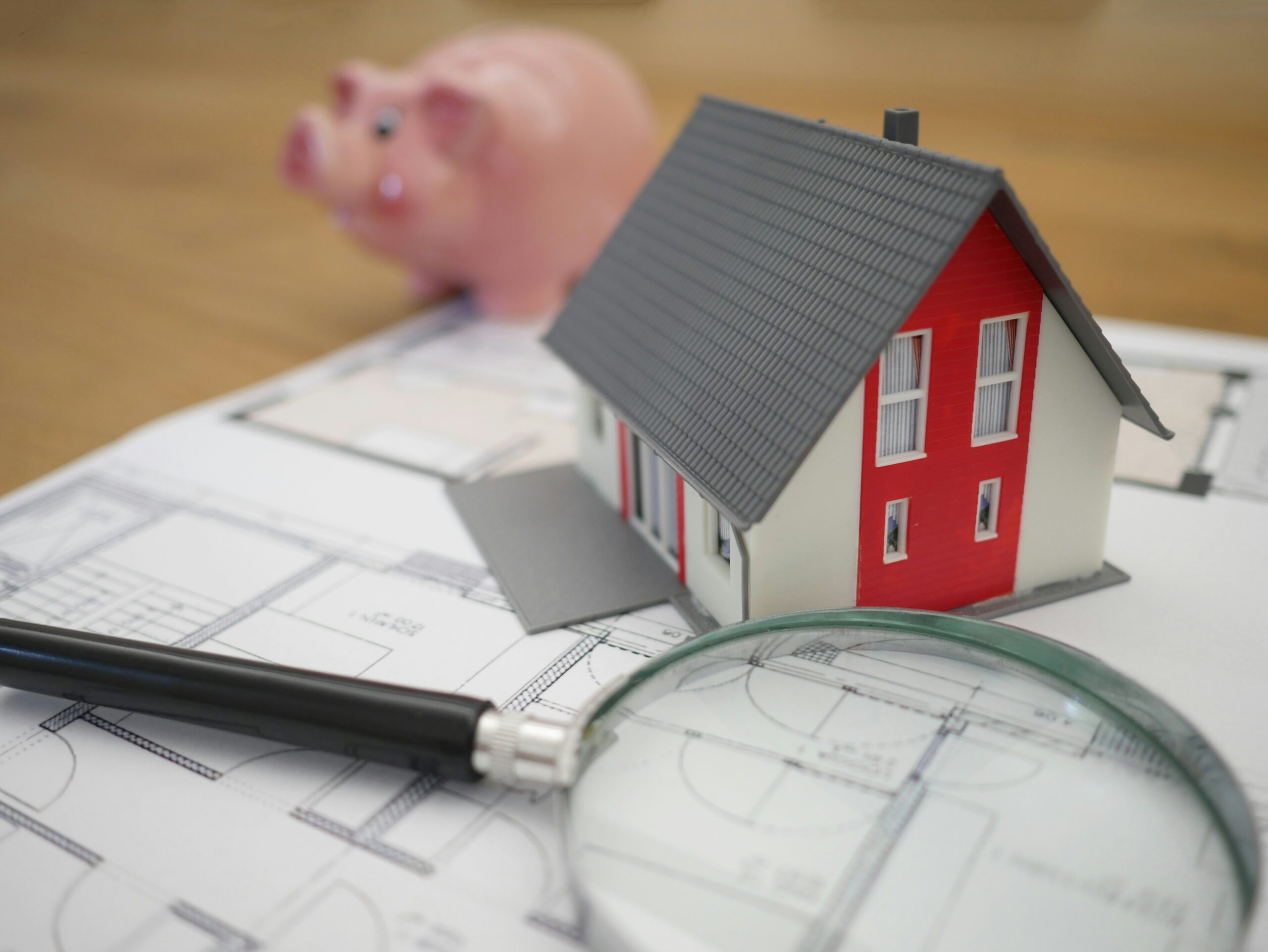DPE, CREP, ERP, asbestos diagnostic… We’ve got you covered!
Certificate of Purchase
First and foremost, after signing the deed of sale, you should ask the notaire for an attestation or certificate of purchase.
In light of this, you can use the certificate to establish a connection with any public utility service, such as phone, gas, or electricity.
What is a property diagnostic?
A certified professional in real estate assessment conducts a real estate evaluation to assess a property’s state, pinpoint risks, and offer impartial details regarding its technical features. These assessments collectively form the Technical Diagnostic Report (DDT in French) attached to the agreement upon signing. When renewing a lease, the property owner must update parts of these assessments with varying expiration dates.
Why is it crucial to conduct these diagnostics?
Following regulations helps owners and landlords fulfill their legal responsibilities, preventing juridical issues and possible conflicts.
The Mandatory Surveys for a French Rental Property
What is an Energy Performance Certificate (Diagnostic de performance énergétique—DPE)?
Have you ever wondered how energy-efficient your building is?
Every French home up for sale or rental comes with an Energy Performance Certificate (EPC) or “diagnostic de performance énergétique” (DPE). The certificate is part of the mandatory diagnostic surveys detailing the house’s energy efficiency.
Based on an evaluation of its energy use and environmental impact in terms of greenhouse gas emissions, an EPC/DPE gives information on the energy performance of a home, apartment, or building in France. The property’s energy consumption in kWh per m2 per year (A to G rating) is determined by factoring in its insulation, heating and cooling systems, domestic hot water systems, and ventilation systems. Previously, calculations were based on actual energy consumption data, which led to errors and a lack of data regarding second homes and vacation homes.
The certificate rates properties on a scale from A (Green), the most energy-efficient, to G (Red), the least energy-efficient, and is required for diagnostic surveys. Although this is not an official rating, you may occasionally see “A+” ratings for eco homes with exceptionally high energy efficiency.
How to Perform a DPE?
Independent professionals certified by the French Accreditation Committee (COFRAC) complete Energy Performance Certificates; a list of accredited specialists is available here. When purchasing or selling a property, the EPC must be shown at the signing of the Compromis de Vente.
The landlord or seller pays the EPC/DPE, which depends on the size and age of the property. It costs between €100 and €250, but tariffs are not regulated, so you can negotiate the best deal. The certificate has a ten-year expiration date.
To promote renovations and update all French homes to contemporary environmental standards, increasingly severe regulations target the least energy-efficient properties (categories F and G). For example, the seller must cover the cost of a regulatory energy audit (audit énergétique réglementaire) for any property rated as F or G.
Furthermore, any French home with more than 450kw/sqm energy consumption cannot be rented. From January 2025, the rental market will exclude G-rated properties, followed by F-rated properties in 2028. There are no plans to prohibit the sale of these homes at this time, but prices should decrease when renovation costs of energy-inefficient properties become transparent.
What’s more?
Properties that meet the requirements for “acceptable housing” must have a class F EPC by January 1, 2025, a class E EPC by 2028, and a class D EPC by 2034. Eventually, rental buildings in EPC classes E through G will have to adhere to the new energy efficiency requirements or will no longer be on the rental market.
As a starting point, landlords and owners have to prepare certificates for termites, asbestos, energy consumption, electricity, gas, lead, and the risk of natural and technological disasters.
If the property is a villa, a report from SPANC must also be provided stating whether there is a septic tank on the property. Also, when measuring a flat or property, the inside of the property must match a predetermined net area (Loi Carrez).
Good to know: Tenants have the right to take action against landlords who fail to comply with the DPE submission requirement, and landlords may face penalties and damages as a result. There are also sanctions for DPE violations.
Asbestos Check (Amiante)
Type of document: Report confirming if materials or items with asbestos are present.
Buildings: Any buildings with a building permit before July 1, 1997.
Validity: This certificate is valid indefinitely unless renovations are necessary. However, if you discover asbestos, you must conduct a follow-up inspection within three years of the assessment.
Don’t panic if you find asbestos!
It’s not always necessary to remove it, but it becomes your responsibility to monitor its condition.
Non-Collective Sanitation Diagnosis (Sewage System Evaluation)
Document: You need this assessment to ensure your private sewage system satisfies environmental and health regulations if your property isn’t connected to the public sewage system.
Buildings Covered: Any buildings not connected to the public sewage system.
Duration of Validity: Three years.
Lead testing (Constat de Risque d’Exposition au Plomb – CREP)
Document: Lead Risk Exposure Report (CREP) should include the health risks associated with exposure and necessary precautions when handling lead-containing materials.
Buildings Covered: If your property was built before 1949, you must get a lead test. This is important to avoid lead poisoning; it’s not just a formality.
Validity: This certificate is valid for a whole year if lead is detected and indefinitely in the absence of lead.
Electricity Diagnosis
Document: Report on the condition of indoor electrical installations.
Buildings that meet the criteria: These inspections are essential to guarantee tenant safety in buildings with gas or electrical equipment older than 15 years.
Validity: Three years.
For a more detailed overview, check out Real estate diagnosis.
The Environmental Risk and Pollution Diagnosis (ERP):
Document: The report needs to include information about the property’s location, such as whether it is near a hazardous factory, in a flood zone, or close to significant lorry routes where dangerous materials are being transported. It must also include information about ground movement and whether the area is prone to earthquakes, major storms, or avalanches.
Properties: All building types outlining potential risks in a prefectural decree.
Validity period: Within six months before the sales agreement date.
Penalties: The buyer can seek a resolution or request a price reduction.
If the seller or landlord can assess risks and pollution themselves or with help from a professional involved in the property transaction, it might be done at no cost. However, fees can range from €20 to €40 if you need a diagnostician. In some cases, you may even get this service free of charge.
Gas Inspection
Document: Report on the condition of indoor gas installations.
Relevant buildings: Properties or sections with installations over 15 years old or lacking a conformity certificate issued over 15 years ago.
Validity period: Up to 3 years for assessing installation conditions and conformity certificates in case of renovation projects.
Consequences: The buyer has the option to request a price reduction or even cancel the sale.
Note: Electrical and gas diagnostics relate specifically to the private part of the dwelling and do not cover the common parts of a block of flats.
Zone de bruit
If the home is located in a zone de bruit, an area near an airport, the report must contain noise information.
Termite Inspection
Document: Report indicating the presence of termites.
Buildings: All constructed structures within areas specified by decrees.
Validity: Up to 6 months. A new inspection is required if municipal decrees identify the area as infested.
Regarding a sale, the seller usually covers the expenses for preparing the report. Nevertheless, if all parties agree, there is room for negotiation to transfer these costs to the buyer.
For rentals, the law specifies that the landlord is responsible for providing the report, with all related costs falling on them exclusively.
The fees for conducting these diagnostics can vary based on factors like property location and the number of tests needed. Real estate diagnosticians typically charge between 200€ and 350€ for their services.
Television Reception
The tenant/buyer must be informed in writing if the property has a television service, that is, whether television reception is possible on the property.
Good to know
-
- The Ministry of Territorial Equality and Housing provides a directory of French diagnosticians.
-
- Statutory Property Surveys include a thorough analysis of each of these reports.
The Boutin Law
Legislation requires all unfurnished rentals to include the property’s habitable surface area.
The Boutin Law (Loi Boutin) determines a home’s habitable surface. It considers factors such as rooms (e.g., living room, bedrooms) while excluding spaces like cellars, garages, balconies, and terraces. The validity of this diagnostic is indefinite. Nevertheless, it should be renewed if substantial renovations could impact the calculation of living space.
The actual surface area is crucial for estimating rent. It is typically specified in the tenant’s agreement.
Housing Information Booklet (CIL)
The Housing Information Booklet (CIL) covers new homes for which a building permit or prior declaration has been filed since January 1, 2023. It also applies to current homes undergoing renovations that affect their energy efficiency immediately.
Find out more information on the CIL report on the French government website.
Precautions
1. If the official sale contract (Acte de vente) is signed without all the reports, the seller will still be entirely responsible for any hidden defects associated with those areas. In case of missing assessments, the buyer can either cancel or negotiate a price for the sale.
2. If the landlord doesn’t give tenants reports or make repairs before renting out a property in France, it’s seen as neglecting safety responsibilities and could lead to legal consequences. If a property diagnosis is missing, the tenant can terminate the lease or ask for a rent reduction.
3. Check out this brochure from the Chambre de Notaires for a more detailed explanation.
4. Find out more facts on regulations for real estate diagnostics in case of sale.
Even though diagnostics come at an extra time and financial expense, they are necessary to ensure the property’s safety and regulatory compliance, foster open communication, and lower risks for all parties involved.
Ensuring your property’s security, energy efficiency, and compliance with French standards is not just a checklist item; it’s a priority.
Lastly, if you’re considering selling your property and, thus, getting a property valuation, don’t worry; several options are available, and we’ve figured it all out for you.
Please note: This article does not constitute legal advice – the information on this page has been prepared solely for your information. As we are not a law firm and act as a platform, we can and may share our estimations, but we cannot give you legal advice for your individual further proceedings.









